heat waves, the climate crisis, and me
when you're too hot to function but too comfortable for action
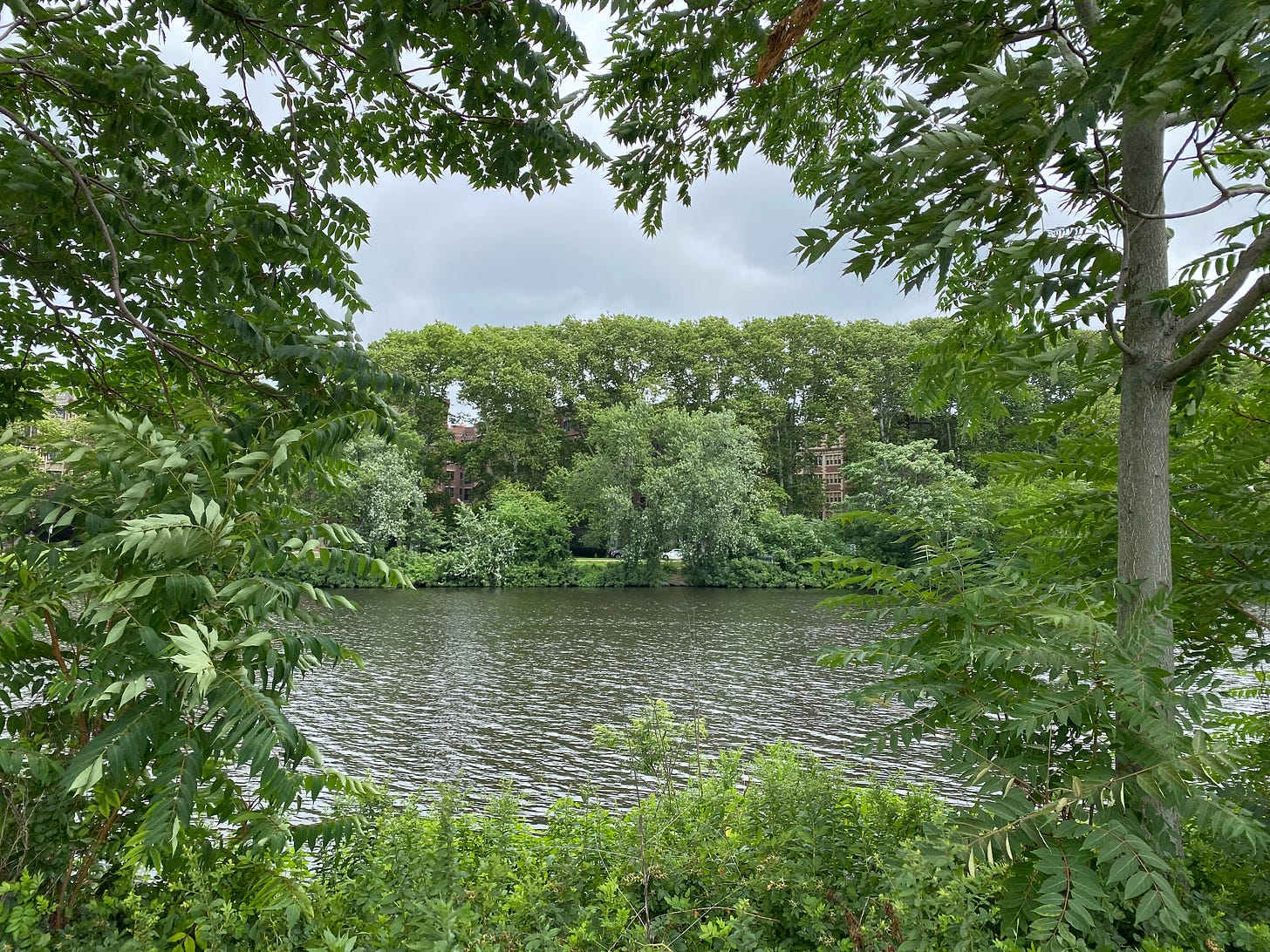
For the last two days the restaurant where I work has been closed because our AC gave out. It couldn’t keep up with another week of 93F (34C) degree heat and humidity and simply clunked out. I’m home early in a sweltering apartment, my own aircon unable to cool the house what with the unrelenting heat. We’re at the halfway point of a two-week heatwave in Boston. Every day I turn my apartment’s two AC units down another degree, take them off “eco” mode and put them on blast an hour earlier than the day previous. I’ll do anything to keep myself comfortable in this heat, I tell myself.
* 🌿 * 🌧️ * 🌸 * 🌧️ * 🌿 *
Last week, the fishing boats that catch the restaurant’s seafood decided not to bother diving for our bivalves — being so quick to spoil, the mussels, oysters, and clams had no chance of staying fresh on ice on a deck for several hours before the boats made it back to shore. At home, I cannot bring myself to cook, so I outsource the hot labour to someone else’s kitchen and go out to eat. I can’t cook in this heat, I tell myself.
* 🌿 * 🌧️ * 🌸 * 🌧️ * 🌿 *
I bought a car and it makes me feel like a traitor to the city’s cycling community. I tell myself that not buying a car wouldn’t have solved an issue much larger than me, which is that Boston’s public transit system is falling apart by the day. Every day, new station closures are announced and every day, it takes a few minutes longer to make the commute into the city and every day, busses are just a little bit less reliable.
In late April, my town’s City Council voted to delay further bike lane construction until 2027, despite 250 community members showing up in helmets to speak against the delay.
In June, two cyclists, two weeks apart, were struck by two separate box trucks while biking in Cambridge. Neither cyclist survived.
I swore the car wouldn’t change me but in the week since I brought it home I’ve entirely abandoned my beloved bicycle, Bikerella, in favor of short drives to perfectly accessible destinations. I drive to the grocery store that I used to walk to, I ask my partner to drop me off at the workplace that used to take me 12 minutes to bike to, I drive to run errands and attend appointments that I used to take the bus to. I can’t bike in this heat, I tell myself.
* 🌿 * 🌧️ * 🌸 * 🌧️ * 🌿 *
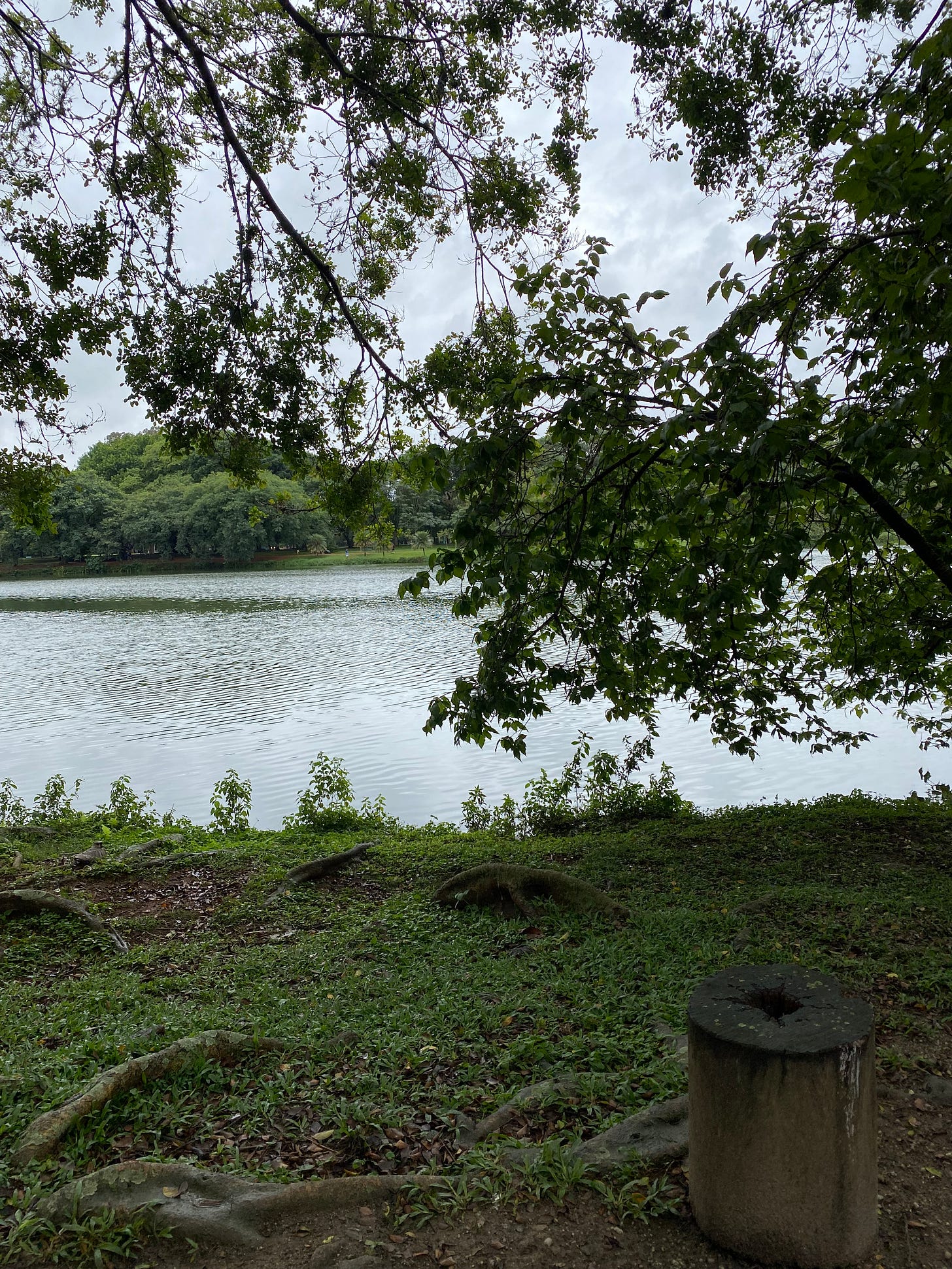
* 🌿 * 🌧️ * 🌸 * 🌧️ * 🌿 *
I order a brand new silk shirt online not because I lack clothing but because none of my clothes feel appropriate for Boston’s weather anymore. Tight shirts don’t cut it in this humidity, so I tell myself I need more of the types of loose clothes I’d pack to spend time in the tropics, like Brazil or Thailand or Mexico. I consider how much time I spend thinking about sustainable fashion and anti-consumerism and how little effort I make to enact these morals. I can’t thrift in this heat, I tell myself.
* 🌿 * 🌧️ * 🌸 * 🌧️ * 🌿 *
My beloved apartment was built 130 years ago and I’m not sure there’s any insulation in the walls. It takes a tremendous electric bill to cool it in the summer and an unmentionable gas bill to heat it in the winter. The new build, boxy white apartment buildings springing up all around Boston boast an “eco friendly” label — I can live there, too, if only I could afford to split a smaller two bed with someone for $4500 a month. I can’t be economical or environmentally conscious in this heat, I lament to myself.
* 🌿 * 🌧️ * 🌸 * 🌧️ * 🌿 *
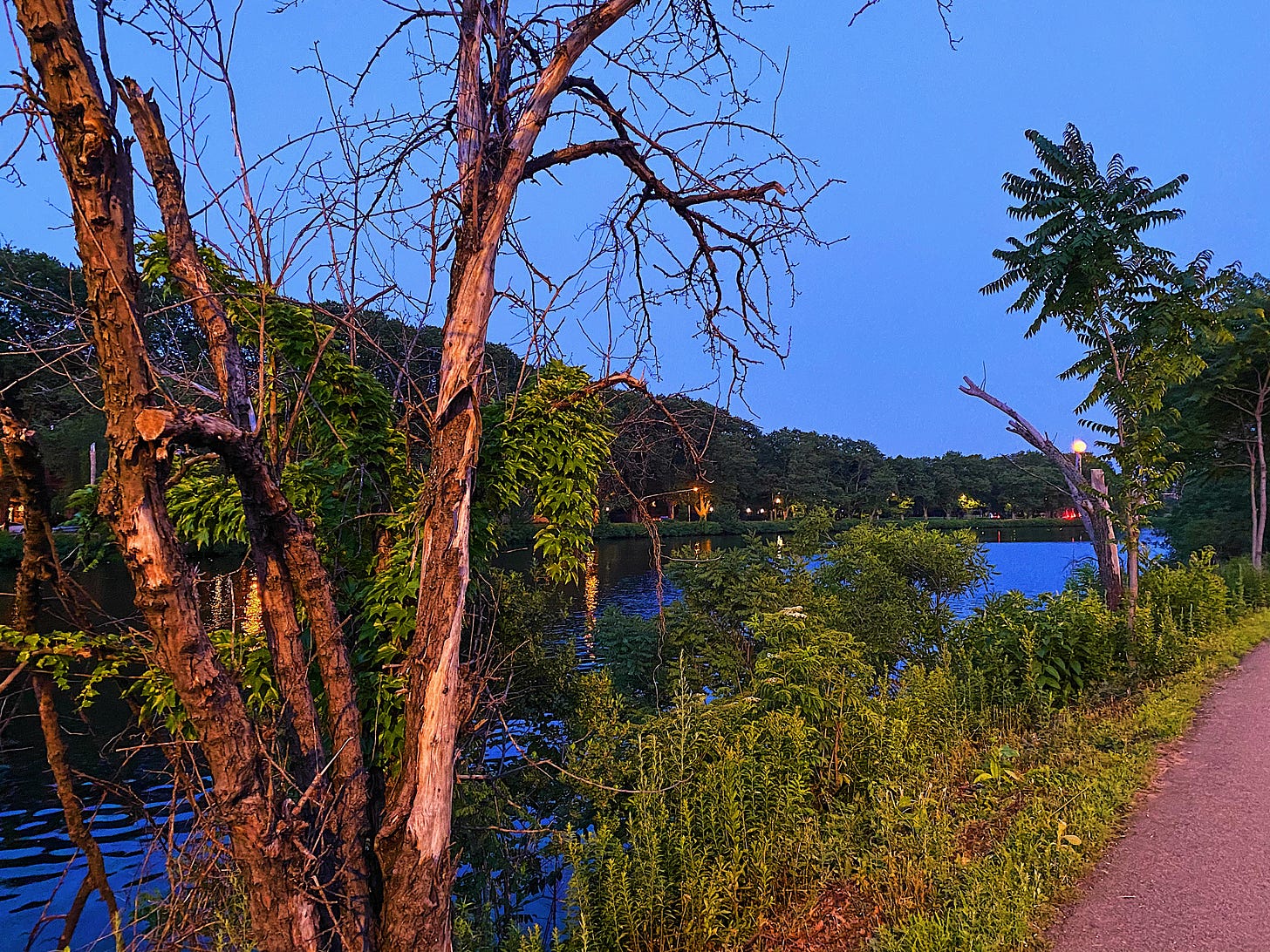
* 🌿 * 🌧️ * 🌸 * 🌧️ * 🌿 *
I can’t stop thinking about how in the summer of 2022, the meat vendors at the farmer’s markets in Boston didn’t have eggs. Just no eggs, for an entire season, because the chickens were experiencing too much stress from a prolonged heatwave. In 2023, there was not a single locally grown peach in the state because an unseasonably late frost killed all the stone fruit in Massachusetts. I can’t rely on my local food system in this heat, I figure.
* 🌿 * 🌧️ * 🌸 * 🌧️ * 🌿 *
At the end of the day I sit here with these statements about how I can’t function in this heat and wonder what the heat means for everyone else.
I can survive a day or two of missed work, but what happens to the millions of workers who can’t bounce back after unexpectedly missing a day’s wages due to workplace heat closures? Are the employers in my state prepared to help alleviate their employees’ financial burden of losing out on work due to our changing climate?
If my local food system in wealthy state in a “first world country” is struggling, then what do the food systems of other communities and other countries look like in extreme heat and unpredictable weather patterns?
I get to opt out of walking, biking, and taking public transit this summer. How will others fare with increasingly unreliable public transit in this heat?
Why is the “eco friendly” solution usually the most expensive, least accessible option?
Realistically speaking, how many restaurants in my city also have broken ACs but are forcing their employees to work in hot kitchens anyway because ownership refuses to lose a day of business?
How long can I continue to rely on my privilege to shield me from the worst of the effects of climate change?
How long before I can no longer prioritize my own comfort in this heat?
How many minor discomforts — like missing local fruit, closed restaurants, delayed flights, summer power grid failures, Eastern skies filled with smoke blown in from West Coast fires — need to build up before we reach a collective tipping point, before we decide that our governments are failing us and we need to take action into our own hands?
* 🌿 * 🌧️ * 🌸 * 🌧️ * 🌿 *

thank you fore reading an especially climate-anxiety-riddled edition of i was cooking, and I hope you can bear with me posing questions rather than providing any answers. Online, with everything going on in this horrid election year, I am seeing a lot of posts encouraging people to organize themselves and become deeply embedded in the fabric of their communities.
With this essay, I’m trying to understand what this might look like for me — what I have time for, what organizations I can access, what I have to offer, and what networks I can become a part of. It’s hot, but I’m home without work, and I have time to learn about community organizing in my area. I hope that you can, too.
Are you involved (or thinking of becoming more involved) in community, climate, or political organizing? I’d love to hear more about it in the comments. How are you faring in this heat?





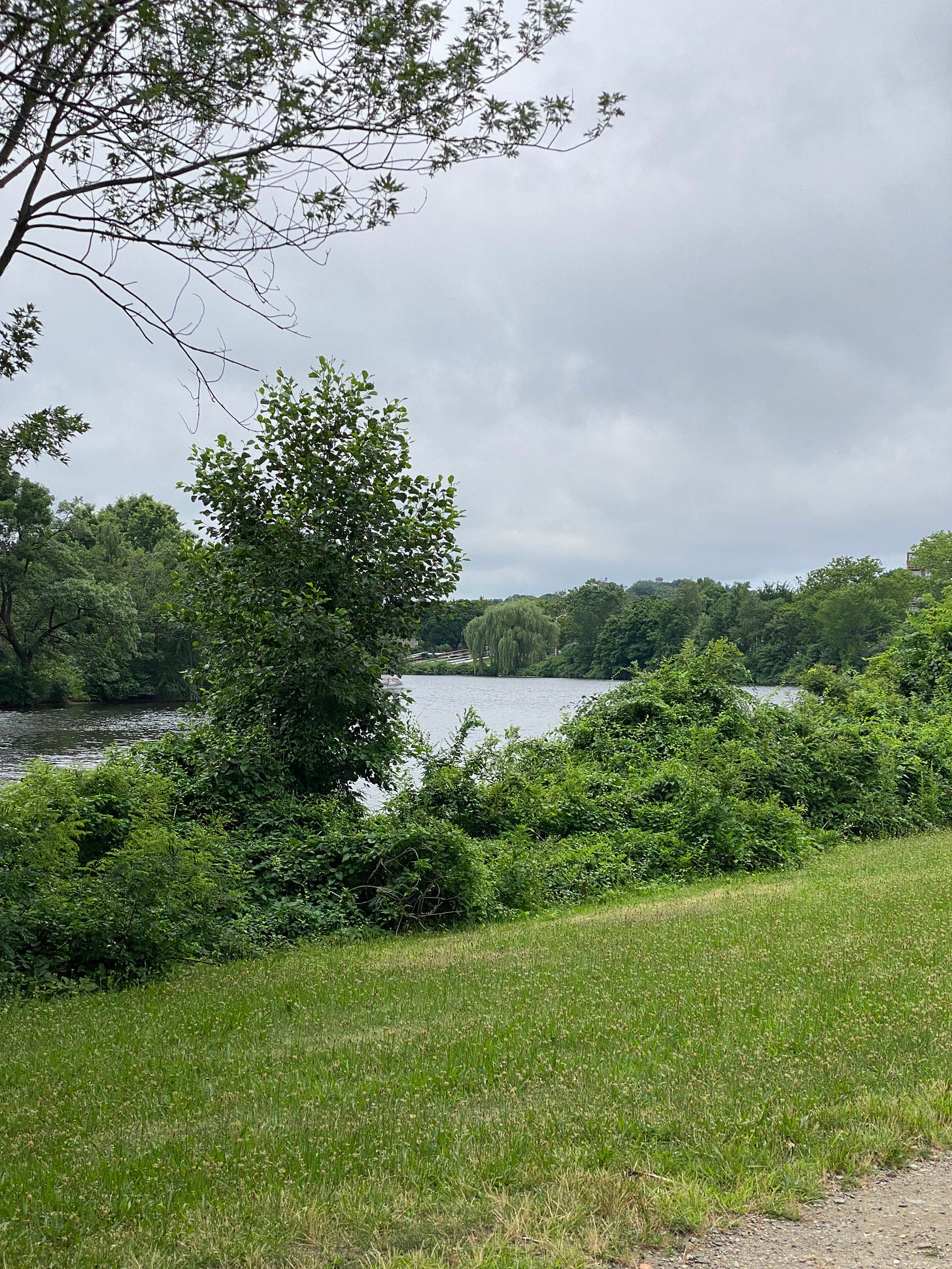
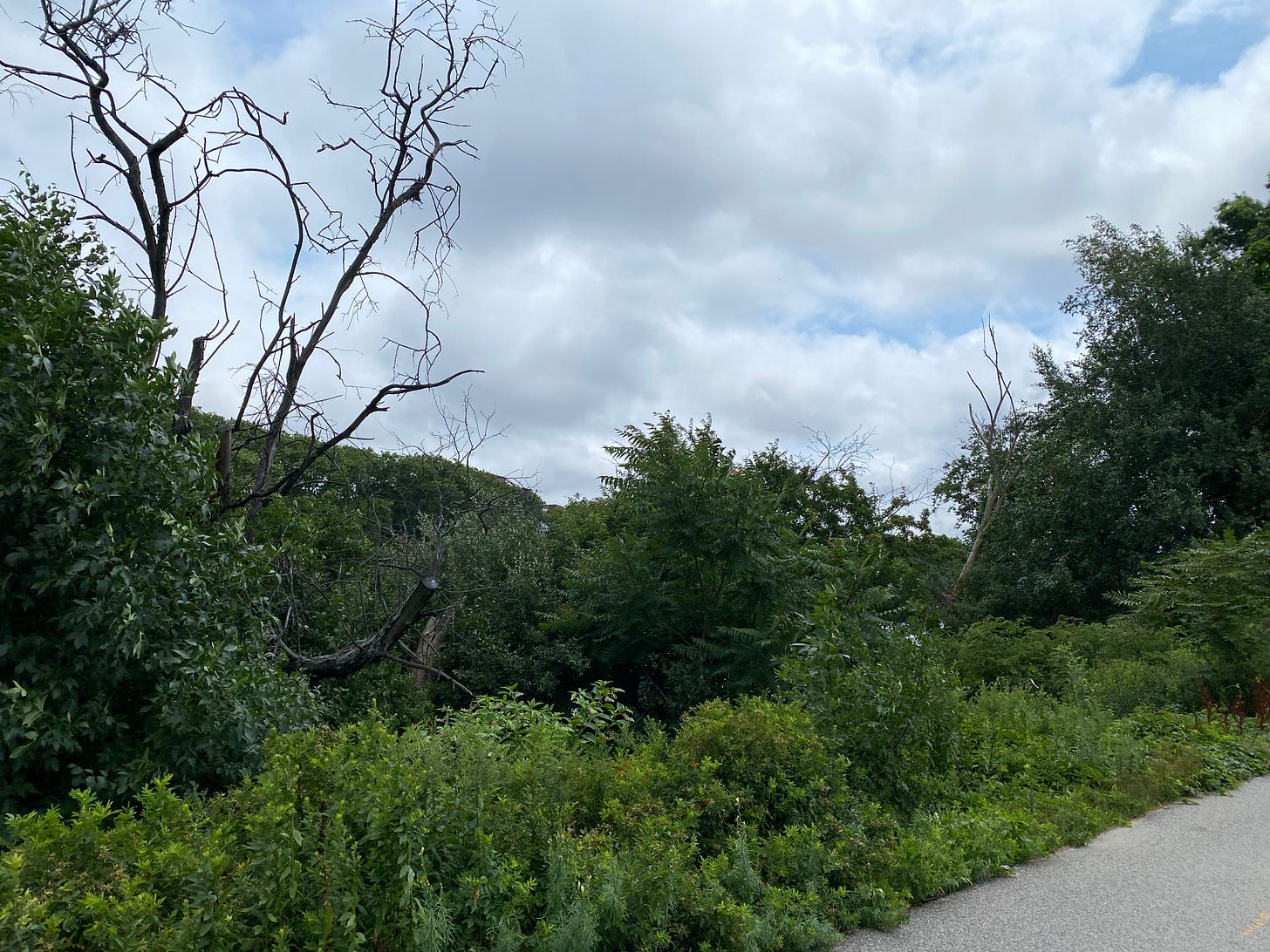
I've been a member of my local chapter of the Democratic Socialists of America for a few years, and this year we've been running a cooling center and organizing water drops to encampments of unhoused people in our city on days above 105F. It's a modest effort but feels good to take care of people in our community and build the organization on that.
wow! what a beautiful essay asking such important questions about ourselves and our relationship with our communities too